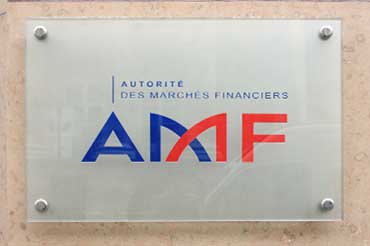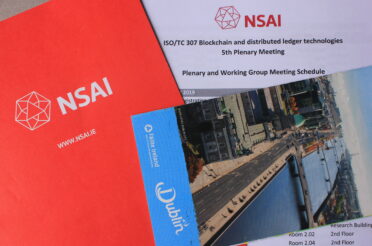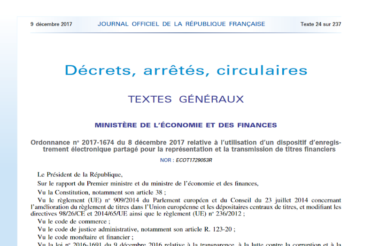After the banks, it is now the turn of the States to enter the race towards blockchain. In France, the Prime Minister, Mr. Manuel Valls, has just declared on July 6, during the "Rencontres financières Paris Europlace", that:
"It is in French law that, for the first time in Europe, we are going to set the legal and security conditions under which we will be able to carry out decentralized financial transactions on the Internet, which is called blockchain." (Source of the extract)
The stakes, both economic and legal, are enormous. Will the Government, which is about to change the regulations, be able to meet the challenges ahead and make the right choices?
This statement by the Prime Minister raises questions about the place of blockchain in French positive law and in the European Union, as well as about the challenges facing the regulatory power.
I - Status of French law regarding blockchain
In France, the evolution of positive law (all the legal rules applicable at a given time in a given territory) concerning blockchain is not the result of legislative or case law provisions. It is the result of the will of the regulatory power driven by the economic issues related to this revolutionary technology.
Before the ordinance of April 28, 2016, recognizing for the first time in French law a legal value to blockchain, there was no specific text applicable to this technology. Both the Senate and representatives of the National Assembly had considered that, as the technology was too recent, it was too early to legislate in this area and that positive law was sufficient.
With a few exceptions, France, like most states in the world, only began to take an interest in blockchain in 2015, when a craze (which also corresponds to the arrival of the Ethereum blockchain) seized the banking and financial sectors about the enormous potential of this technology (with one major reservation, however: if blockchain was carried to the skies, Bitcoin, which is its foundation, was relegated to the underworld of the darknet and thus carefully forgotten).
It is in this context that the order of April 28, 2016 on blockchain vouchers was published by the Government. This text introduces for the first time in French law a definition of blockchain and recognizes the legality of its use for a very limited, but promising, field that are the minibonds. These securities were created by the ordinance to provide loans to small and medium-sized businesses through participatory finance platforms using blockchain.
It is interesting to note that the Government chose to use an experimental procedure linking two rapidly evolving economic sectors: blockchain and participatory finance.
These two sectors are emblematic of the 4th revolution (the digital one) affecting the global economy. At the end of 2015, France had more than "45 million Internet users, or 87% of the population; in the same year there were 3.2 billion Internet users [...] and 7 billion mobile users worldwide." "Salaried employment in the digital sector grew from 2009 to 2014 at a rate four times faster than the economy as a whole" and "no industry had ever created so many jobs so quickly" (Statements by Professor Philippe Le Tourneau in the introduction to his book on "Computer and Electronic Contracts", 2016/2017 edition, Dalloz).
Unemployment being a real problem of society, the Government under the influence of the economic circles has well understood the enormous potentials of the blockchain. This explains why, while until now only the ministers, Ms. Axelle Lemaire and Mr. Emmanuel Macron, addressed this topic, the Prime Minister has for the first time publicly expressed himself on this subject. This speech of the Head of Government shows a gradation in the importance given to blockchain by the regulatory power.
This speech was made in front of the members of the Paris Europlace network, which gathers the main French economic actors. This network is one of the organizations that was consulted for the preparation of the April 28 order. He is also the creator of the Louis Bachelier Institute, which organized a morning session on May 12 on the topic of "Blockchain and other distributed registries".
If experiments on blockchain did not wait for national legislators to be practiced, in case of litigation things become more complicated. Without a specific applicable regime, industry players are faced with a multitude of legal rules that could potentially apply, as well as high risks of litigation. They therefore find themselves in a state of complete legal uncertainty.
The major groups, which are particularly concerned by the problems of legal security, do not want to commit themselves without a guarantee from the government. Thus, last April, BNP Paribas Securities Services (whose parent company is a member of the Paris Europlace network) announced an agreement with SmartAngels to allow companies and investors to experiment with blockchain as part of the participatory financing platform, subject to government approval.
The Prime Minister's intervention tends to reassure the ecosystem. Doubts had been expressed about the real will of the Government to regulate the matter, as it had left itself some leeway by submitting certain provisions of the ordinance to a future application decree.
In the highly competitive world of digital technology, the law has become a factor of international and European competition.
This article was first published on: www.bitcoin.fr







2 Responses
France wants to be the first to regulate blockchain in Europe (2/3) | Cabinet Michelle Abraham
[…] (Read the first part of this article) […]
France wants to be the first to regulate blockchain in Europe (3/3) | Cabinet Michelle Abraham
[…] : first part – second […]